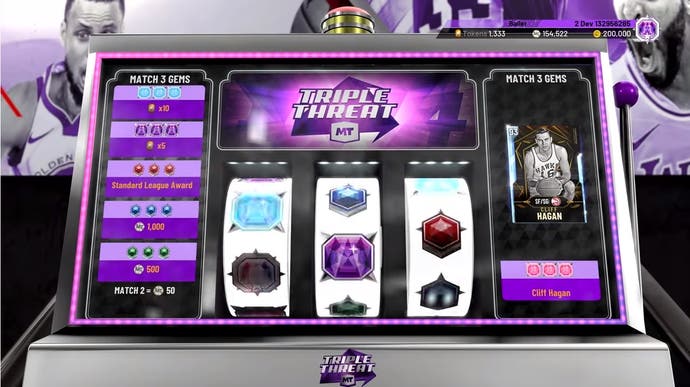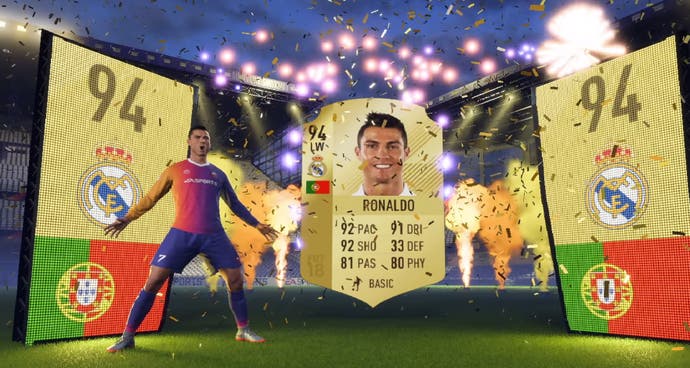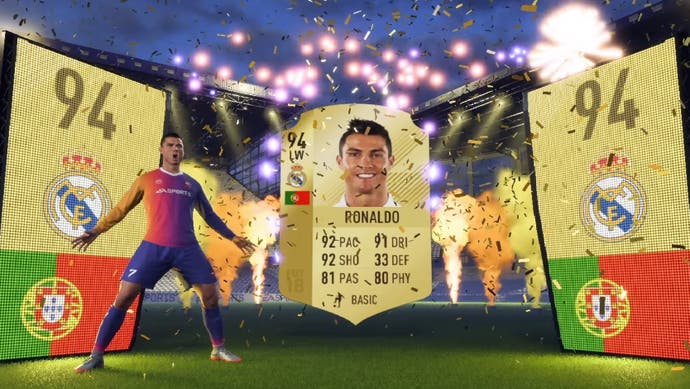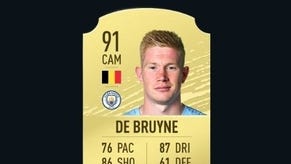NHS chief says loot boxes are "setting kids up for addiction" to gambling
"Young people's health is at stake."
The NHS' mental health boss has said loot boxes are "setting kids up for addiction by teaching them to gamble".
In a strongly-worded statement, NHS mental health director Claire Murdoch called for a crackdown on gambling addiction risks - and that would involve video game companies banning loot boxes from games children play.
The NHS confirmed the opening of a new treatment centre in response to growing concerns about addiction to gaming. This sits alongside up to 14 new NHS gambling clinics nationwide designed to address significant mental ill health linked to addiction.
2019 saw loot boxes and video game addiction hit the mainstream headlines. During a meeting in June 2019, representatives from Epic and EA struggled to answer questions from MPs about how children play Fortnite and FIFA and the systems put in place to protect them. In the meeting with the Digital, Culture, Media and Sport Committee, topics of discussion included play time, which the Epic rep said he had no idea about and the EA rep said EA doesn't track; duty of care to players, which, bafflingly, EA and Epic seemed to argue against; the potential for addiction and the World Health Organisation's recent high-profile classification of gaming disorder as a disease, which, frustratingly, EA and Epic failed to acknowledge; and loot boxes. Kerry Hopkins from Electronic Arts stepped in to say: "we don't call them loot boxes - we call them surprise mechanics."
Murdoch said: "Frankly no company should be setting kids up for addiction by teaching them to gamble on the content of these loot boxes. No firm should sell to children loot box games with this element of chance, so yes those sales should end.
"Young people's health is at stake, and although the NHS is stepping up with these new, innovative services available to families through our Long Term Plan, we cannot do this alone, so other parts of society must do what they can to limit risks and safeguard children's wellbeing."

The issue of loot boxes, gambling and video game addiction has become a hot topic in recent years. In September 2019, a Department for Digital, Culture, Media & Sport Committee recommended the Government regulate loot boxes under the Gambling Act.
A month later, in October 2019, the children's commissioner for England called for tighter laws around gambling and gaming to protect children worried about how much time and money they're spending in online games - and also called on the Government to regulate loot boxes as gambling.
In a report titled Gaming the System, a 16 year-old FIFA player specifically said loot boxes were like gambling: "you could lose your money and not get anyone good, or get someone really good."

A report by the Royal Society of Public Health in December found over half of young people believe playing a video game could lead to gambling, and the link between gaming and gambling is a negative one.
Murdoch wants a ban on sales of games with loot boxes that encourage children to gamble, wants game companies to introduce "fair and realistic" spending limits to prevent people from spending thousands in games, wants games to make clear to players what percentage chance they have of obtaining the items they want before they purchase loot boxes, and wants the industry to support parents by increasing their awareness on the risks of in-game spending.
The NHS said the Gambling Commission does not regulate loot boxes "due to a loophole" meaning it is not classed as gambling, referencing the inability to "cash out" items.
But of course, as we've reported in the past, cashing out is possible, although it often involves third-party websites. The NHS, which seems to have done its homework, pointed to this, saying: "third party websites selling gaming accounts and rare items are commonplace and easy to find on places such as eBay across the internet."
Shirley Cramer CBE, Chief Executive of the Royal Society for Public Health, echoed Murdoch's statement, saying: "The rise of gambling by stealth in video games is a threat to the health and wellbeing of young people, and we commend the NHS for coming out with this bold call.
"There is no doubt that loot boxes must be regarded as a form of gambling - and indeed our research showed that three in five young people regard them as such. And yet, the world of online gaming remains an unregulated, fast-evolving and opaque market with little to no safeguards for children.
"The Government must now make good on its manifesto commitment, and move without delay to revamp the outdated 2005 Gambling Act, so that it reflects the challenges of the modern day and protects our young people."
Will the video game industry listen? Back in August, Microsoft, Sony and Nintendo announced they wouldn't allow loot boxes on consoles unless publishers disclosed drop rates.
More recently, the UK Interactive Entertainment Association (UKIE), which represents the video game publishing industry in the UK, launched a campaign fronted by former football pro Rio Ferdinand designed to encourage parents to use family controls on consoles.
Responding to today's statement from the NHS, Ukie said: "The games industry takes its responsibility to players very seriously and acknowledges that some people are concerned.
"That is why on the 10th January we launched our Get Smart About PLAY campaign, which is designed to help parents and carers manage play online and in the home.
"It shows that it is already possible to manage, limit or turn off spend in games with the help of family controls, providing practical guidance on how to do so at www.askaboutgames.com.
"The games industry has already committed to measures to inform players about purchasing choices, including in regards to loot boxes.
"New platform policies will require optional paid loot boxes in games to disclose information on the relative rarity or probability of obtaining randomised virtual items by the end of 2020, with many companies doing this voluntarily already.
"The government has committed to conducting a review of the Gambling Act, which loot boxes will form a part of. We look forward to working constructively with them on it."
But these are small steps forward from an industry that so far seems unwilling to risk reduced revenue unless it absolutely must.











